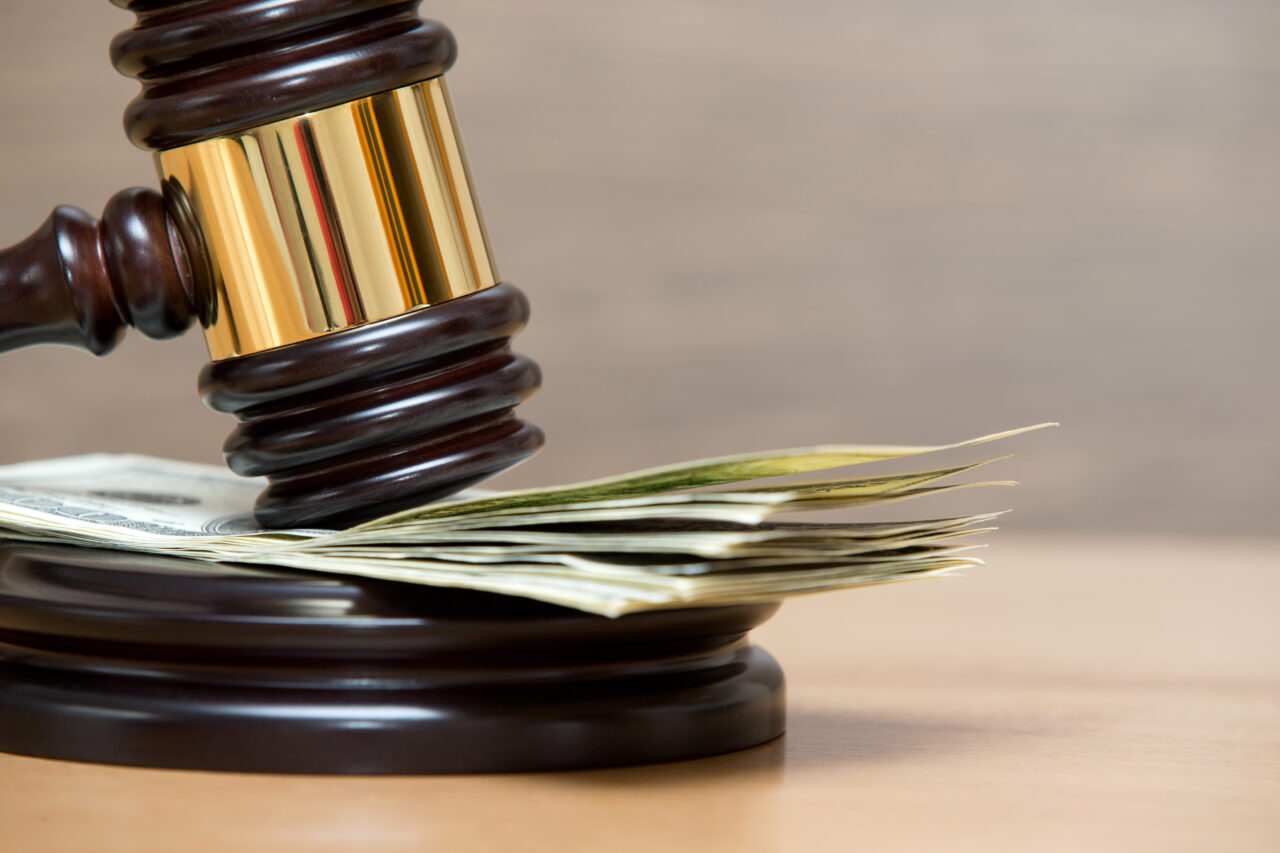
Is Florida running a bail grift?
That’s how one Judge described the state’s decades-old policy of keeping bail money from third parties and using it to pay off defendants’ outstanding fines and fees.
At least one member of an 11th Circuit Court of Appeals panel that considered the issue this month appears to agree with that assessment.
So do several current and former lawmakers who have tried to end the practice.
Florida is the only U.S. state that forces local governments to take money from organizations and individuals who post bail for another person to cover the defendant’s debt.
State law mandates that county Clerks must seize bail money that’s usually returned to pay for defendants’ fines and fees, regardless of who paid.
Those fees and fines frequently add up to hundreds or thousands of dollars. And they often come as a surprise, said Josh Mitman, Senior Policy Counsel at the nonprofit Bail Project.
“In Florida, people trying to support a loved one during a devastating moment are caught in a financial trap,” he said. “After their bail money has already been accepted, they discover — without sufficient notice and often through buried fine print — that they are suddenly on the hook for court fees from decades ago, turning an act of support into an unexpected financial loss.”
Legal fight pits bail fund against state mandate
There’s an ongoing federal case over the issue. The American Civil Liberties Union of Florida (ACLU) filed a complaint against Leon County Clerk Gwen Marshall on behalf of the local Tallahassee Bail Fund nonprofit in August 2022, alleging that Florida’s bail system unlawfully punishes third parties, including charitable bail funds.
Notably, the ACLU made clear that while Marshall was the named defendant, she isn’t to blame for the state law with which she must comply.
“Because she’s the person enforcing it, she’s who has to get sued,” ACLU lawyer Jerry Edward told the Tallahassee Democrat at the time. “There’s no way to challenge the statute by itself. You have to challenge the enforcement.”

The ACLU argued that Florida’s bail practice is unconstitutional because it violates the Eighth Amendment’s prohibition on excessive bail and punishment, since it drains funds from innocent third parties rather than defendants.
Between its founding in 2020 and the time the ACLU filed its suit, the volunteer-run Tallahassee Bail Fund had raised $12,700 to bail out cash-strapped defendants.
Of that, $5,200 — about 41% — was withheld by the Leon Clerk’s Office to pay fines and fees, hampering the organization’s ability to recycle funds and forcing it to turn away more people than it helped.
Fast forward to February 2024, Chief U.S. District Judge Mark Walker ruled in the Tallahassee Bail Fund’s favor and issued an injunction preventing enforcement of the state statute in question.
But the injunction was extremely narrow, applying solely to the local bail fund and not any other person or group offering similar bail-related aid.
The state appealed, and a three-Judge panel at the 11th Judicial Circuit Court of Appeals heard oral arguments over the issue three weeks ago. One of the panelists, U.S. Circuit Judge Adalberto Jordan, a Barack Obama appointee, didn’t mince words in how he viewed Florida’s bail-withholding practice.
“This is all a scam,” he said, adding that the policy isn’t even consistent because while it applies to spouses, family members, friends and organizations, it doesn’t apply to bail bond agents. He also pushed back against a state argument that only individual defendants, not the bail fund itself, had standing to sue, since it was the bail fund’s money that was being held.
The panel — Jordan, an Obama appointee; Senior U.S. District Judge Timothy Corrigan, a George W. Bush appointee; and U.S. Circuit Judge Kevin Newsom, a Donald Trump appointee — gave no timeline for a ruling.
Legislative fixes keep hitting political snags
By this time next year, there’s a slight chance the case’s central contention could become a non-issue, depending on whether state lawmakers pass a repeatedly proffered proposal that would repeal the unique law.
During the 2025 Legislative Session, the proposal came in the form of companion measures (SB 1396, HB 243) introduced by Fort Pierce Sen. Erin Grall and Pensacola Rep. Alex Andrade, both Republican lawyers.
If passed, the measure would have shifted the fine and fee burden solely to the defendant or their spouse, effectively ending Florida’s policy of withholding money from third-party bond payments. It would also have required Clerks to more prominently display the revised withholding policy on relevant paperwork and enroll defendants in payment plans if the withheld funds weren’t enough to cover all fine and fee costs.
The legislation died after the Senate refused to take up the Senate bill.

Andrade, who first filed the legislation in 2021 with upper-chamber support from former Orange County Democratic Sen. Linda Stewart, said the change comports with conservative principles.
“It’s a conservative issue to say the government shouldn’t take property that they’re not entitled to,” he told Florida Politics.
“If the defendant or their spouse posts that cash bond and the defendant owes money, well then yeah, you have that money to pay off that defendant’s debt. But churches, civic groups, friends, roommates — they’re not obligated to pay the debt of the criminal defendant, or at least they should be. And the fact that we in the state of Florida say, ‘Even if you uphold your end of the bargain and the person shows up to court, we still take your money,’ it just feels like an unconstitutional taking to me.”
Andrade said he plans to bring the bill back for the coming Session, but opposition to the bill consistently runs into each year has been attritive. Much of it centers on the same argument: that troublemaking groups will view the bail law’s repeal as a loophole to get members back onto the streets more quickly, allowing them to continue committing crimes.
“It obviously won’t, because (the posted bond money will only be returned if) someone has shown up to all of their court dates and the case is over. But there’s so many preconceived notions and so much ignorant bias about the entire topic,” he said. “If I uphold my end of the bargain and make sure the defendant shows up to all their court dates, the government shouldn’t get to take my money.”
Cash bail is a major driver of jail populations in the U.S. On any given day, about two-thirds of U.S. inmates are legally presumed innocent, yet can’t return home while awaiting trial because they can’t afford bail, according to the Prison Policy Initiative.
Studies have shown that pretrial detention due to unaffordable bail disproportionately impacts low-income defendants and people of color, with even short jail stays contributing to job loss, housing instability and recidivism.
Other contributing factors include drug and property crime enforcement in some jurisdictions, mental health and substance abuse issues, and certain sentencing policies like mandatory minimums, three-strike laws, and lengthy probation and parole terms.




One comment
Larry Gillis, Director-at-Large, Libertarian Party of Florida
September 1, 2025 at 9:33 am
BACK OFF.
The sole purpose of bail money is to ensure that the defendant shows up at all court appearances, that’s all. Once that is accomplished, the money goes back to whomsoever put it up. Even if that happens to be the defendant, the clerk is duty-bound to return the money whence it came.
If the defendant receives his money back, then boogies (an excellent Boston phrase for “doesn’t pay the fine”), an arrest warrant can issue.
Do not hobble the exercise of the Eighth Amendment (bail) by confabulating it with other concerns.
See you at the Barricades.